The success stories of people who've swapped city for country
Endless snooty newspaper columns were written post-Covid by those who'd moved to the country only to return to the city, shocked at having encountered smells and noise. But countless thousands have made a huge success of it, and brought their own talent and enthusiasm to rural communities. Fergus Butler-Gallie met some of the increasing number of people who have made a huge success of moving to the country.
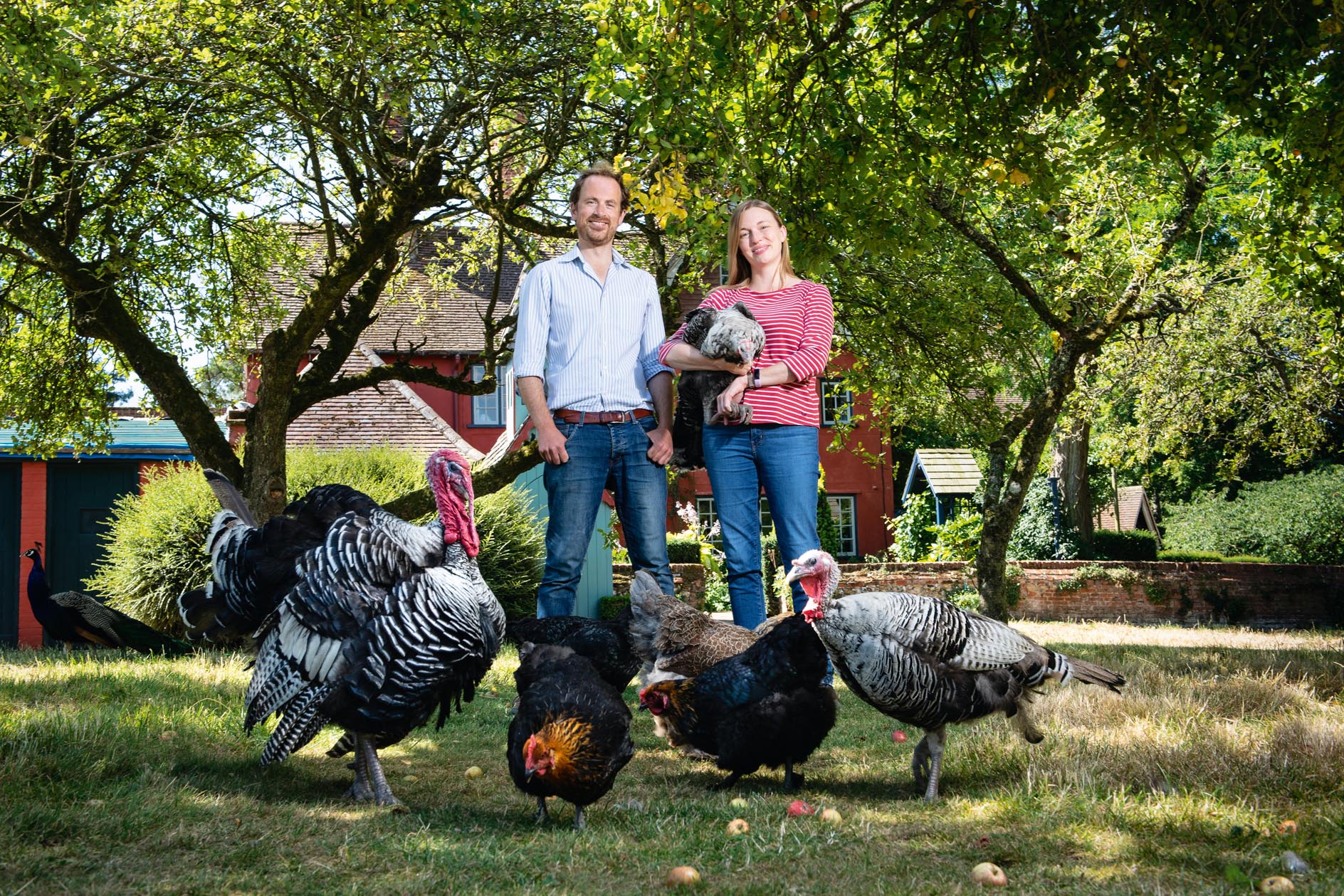
Twenty years ago, Escape to the Country arrived on the nation’s television screens. It is a long-standing staple of daytime scheduling and, as such, is especially beloved by students: a friend of mine would watch it religiously at university, giving it considerably more attention than they did their degree. Part of the programme’s continued appeal — it has now clocked up more than 650 episodes — is that, deep down, Britain continues to have a great yearning for the sort of life it professes to show.
The combination of space, privacy, verdant pastures and engaged community living still has enormous currency. A country cottage — or simply an environment in which ‘R&R’ means a little more than a snatched 15 minutes with a podcast on a packed commute — is high on many people’s wish list. Unfortunately, this used to be a pipe dream for young professionals, who would only move when they’d hit one of life’s natural turning points, such as the arrival of children.
High house prices, lack of work opportunities and poor transport links have historically meant that even those of us who grew up in the countryside left at some point between the ages of 18 and 30. Indeed, an October 2021 report by the CPRE, significantly titled Outpriced and Overlooked, found that only two in five young people living in the countryside thought they’d continue to do so in the future, with 84% of those considering leaving citing those poor transport links as a key factor influencing their decision (86%), together with a sense of loneliness (84%), lack of affordable housing (84%) and poor digital connectivity (76%).
However, a gentle, youthful breeze of change is blowing through England’s hamlets and villages. Changes to working life after the pandemic — combined with the gap in property prices between country and town that, despite having narrowed in the past two years, remains considerable — and the increasing quest by the millennial generation for a better quality of life has seen a rise in the number of younger people leaving the city in their twenties and thirties to build a new life in the countryside. Whether it’s starting new business ventures, grappling with the challenges rural life can bring or simply lowering the average age of many of the admirable legions of volunteer groups that keep the countryside going, young people are no longer such an endangered species among our lanes and hedgerows.
The turkey and honey producers
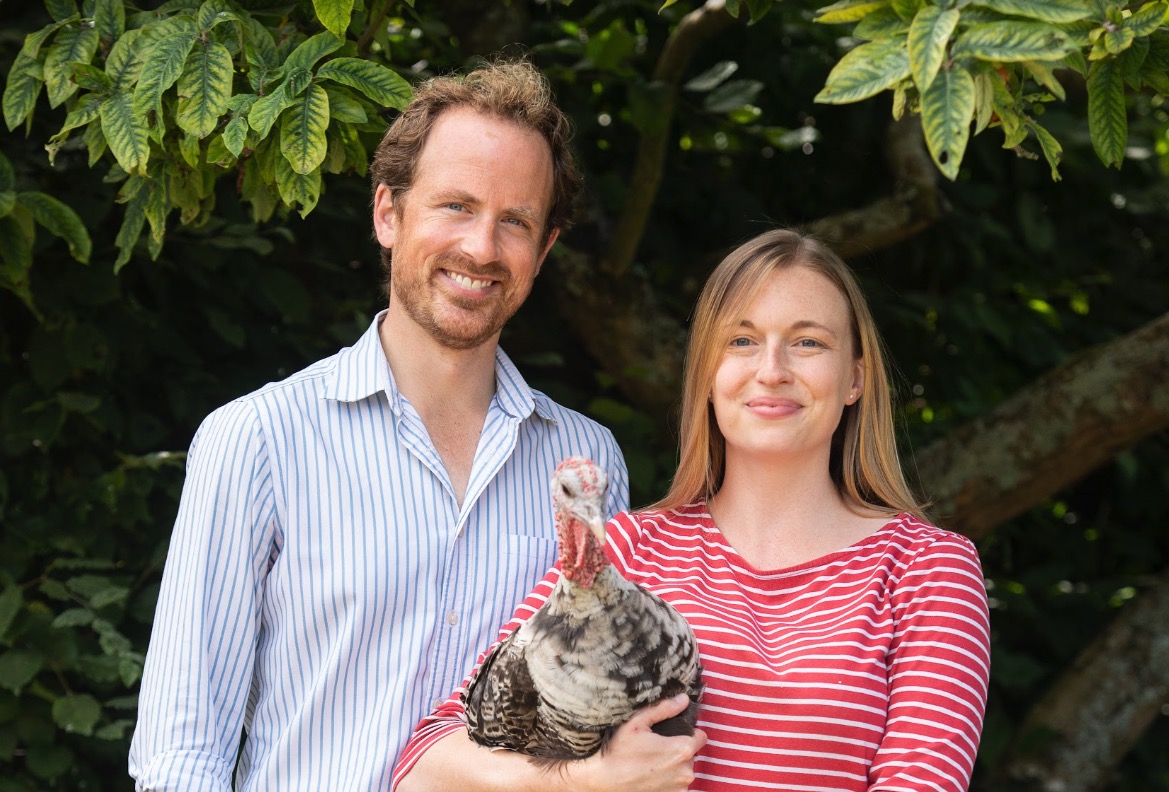
'When I tell the people I studied or worked with that I now breed turkeys, they look at me as if I’ve lost my mind. And that’s before I even mention the quail or guinea fowl,’ declares Chris Milton, who has been living in rural Suffolk for nearly 10 years, having moved to the coast in his mid twenties after an early career in university towns.
What began with keeping a few chickens in the garden of his new home has become a much larger enterprise and he and his partner, Naomi Sturges, now not only keep free-range poultry, but also waterfowl, goats and thousands of bees.
‘It’s radically changed our relationship with food,’ he notes. ‘You realise that it shouldn’t be possible for a supermarket to sell a chicken for £4.’ Mr Milton and Miss Sturges’s efforts are fast becoming a fixture across the county — from maintaining the hives at Bury St Edmunds Cathedral to providing poultry to the Lord Lieutenancy. Their ventures, Suffolk Heritage Turkeys (www.suffolkheritageturkeys.co.uk) and The Foraging Bee, provide high-quality poultry and honey to businesses, institutions and individual clients.
Sign up for the Country Life Newsletter
Exquisite houses, the beauty of Nature, and how to get the most from your life, straight to your inbox.
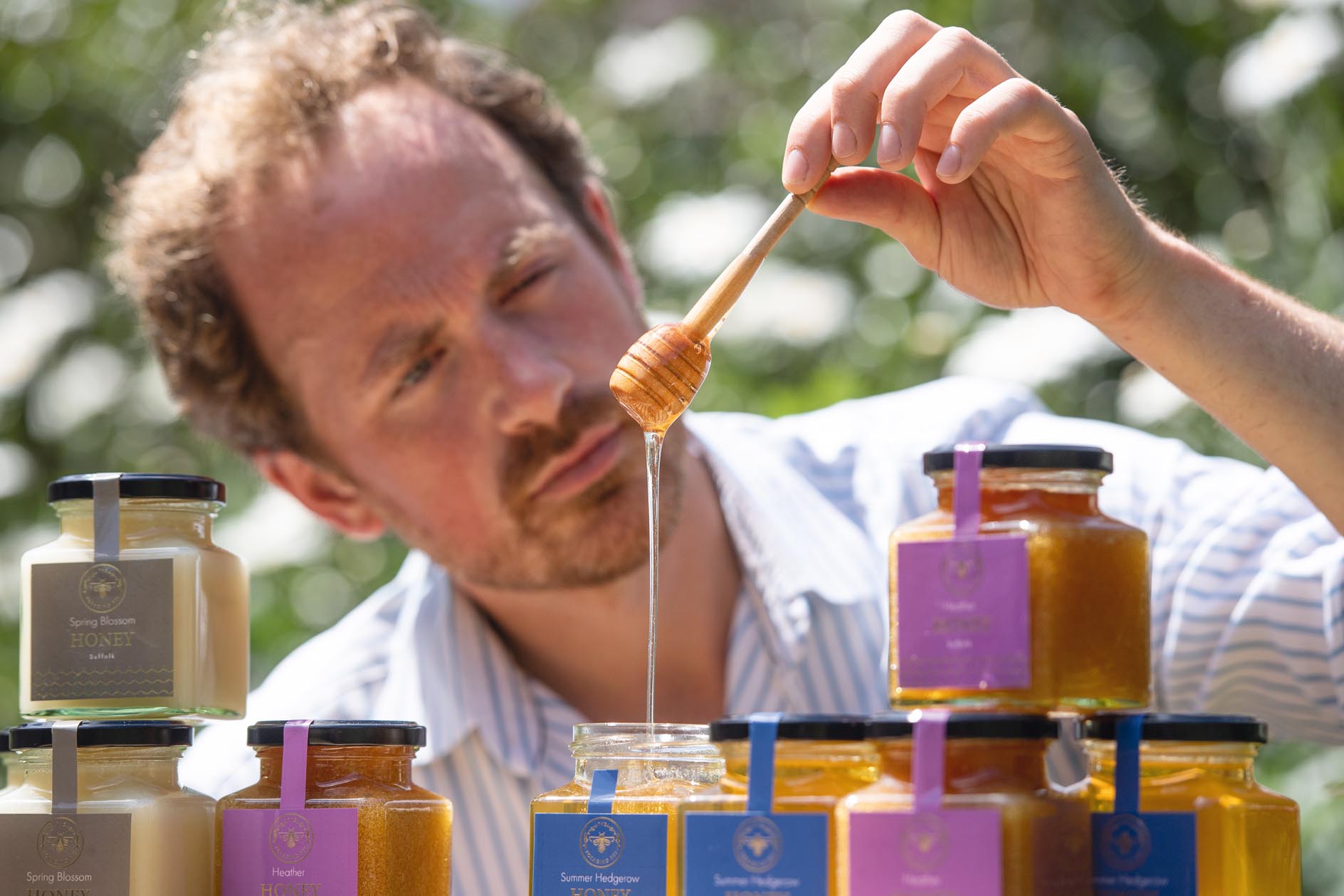
As well as throwing themselves into animal husbandry, they have kept a hand in the musical life of that particularly artsy slice of East Anglia: Miss Sturges sings in local music groups and choirs and Mr Milton lectures on music for community groups and institutions across the county.
Mr Milton is keen to dispel some of the myths people repeat about rural life. ‘I’ve found the countryside more welcoming than cities in many ways — it’s certainly more diverse than people sometimes give it credit for.’
The lawyer and the businessman
Alexander and Anna Fisken were both born and brought up exclusively in London. However, after meeting at university, they decided to settle down outside the metropolis, first in a country town — Abingdon — then further into the Oxfordshire countryside. They were married during the pandemic and have since had their first child, Isabella.
‘I think, because we both grew up in London and spent our teenage years there, we didn’t really feel as if we were missing out on much by not being there in our twenties,’ admits Mrs Fisken. When friends who were country born and bred made the rush to London after Oxford, the Fiskens went in the opposite direction. ‘It was a question of work and life balance,’ explains Mrs Fisken. ‘I knew I wanted to work as a lawyer, but that I didn’t want the 24/7 culture of a London firm and Alex’s business can be run from anywhere. We looked at the sort of flat we could have got in, say, Balham, compared with where we live now and it was a bit of a no-brainer.’
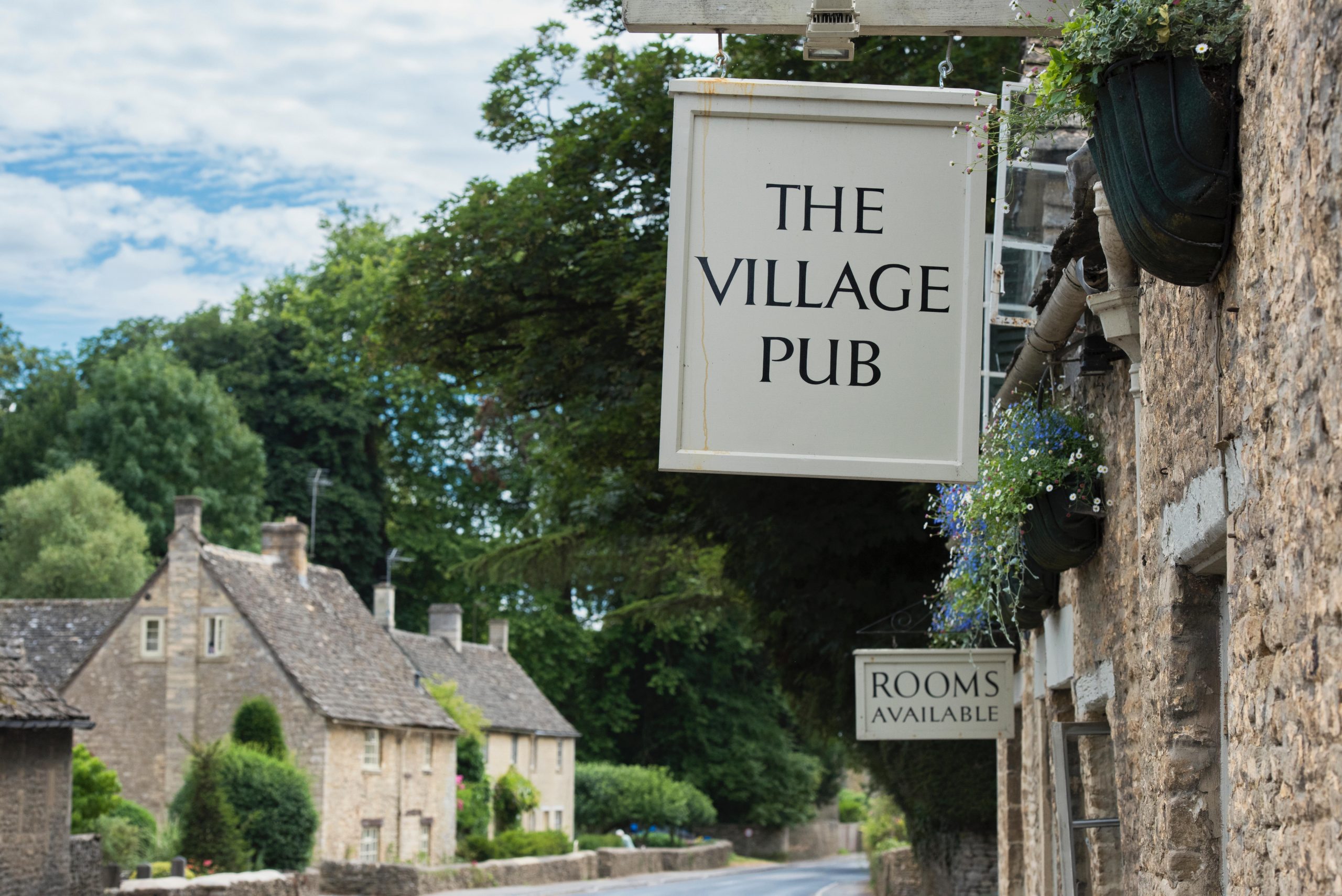
Country-town living proved to be an important stepping stone for the couple: ‘It helped prepare two Londoners for the lack of immediate amenities, but we’re very used to it now.’ Oxford and Abingdon remain only a short drive away for events such as concerts and, in some ways, the amenities of the countryside have proved better than those of London. ‘Alex used to have to travel all the way out to the suburbs to play cricket, lugging his bag on the Tube or buses — now, it’s a two-minute journey by foot from the back door,’ points out Mrs Fisken. However, the decision to move to the country had deeper roots. Knowing they wanted children meant leaving London was always going to be a step they would take at some point and their twenties made as much sense as any other time. ‘We wouldn’t want Isabella to grow up anywhere else,’ concludes Mrs Fisken.
The civil servant
A civil servant, Charles Patterson saved up during the pandemic and moved to the north Kent coast in August 2021, when it became clear that work in Whitehall would only require two or three days a week in the office. Now, he can swim every morning before work, but that’s not the only appeal of rural life. ‘There’s so much to explore,’ he enthuses. As with many new arrivals, Mr Patterson values the extra space, the bracing walks and the ability to live without some of the stresses of renting in the city.

He has also noted an increase in the number of younger people moving to the area, but that’s not without its drawbacks. ‘I’ve noticed most of the new arrivals are young families, whereas I’m single and live alone. I definitely think the country move is something that’s weirdly easier when you’re at least in a long-term relationship. The isolation is joyful at times, but awful at others.’ That said, he admits that, although he misses out on some ‘impromptu’ meet ups in London, city charms are still very accessible. ‘It only takes a bit of extra admin,’ he reflects with a smile.
Overall, however, the countryside’s sense of permanence and community is something he values enormously. It is, he believes, not so much a culture shock as a welcome entry into the world of ‘decent pubs and good walks’.
The tech expert and the lawyer
We always envisaged living in the countryside’, says Louis Babington-Reynolds, ‘but not until our forties or fifties.’ Then, adds his wife, Alice, ‘Covid changed everything’. The couple both work in jobs that seem thoroughly urban — at a tech company and a law firm, respectively — but seized the opportunity provided by home-working and decided to make their long-term dream come true a few decades early.
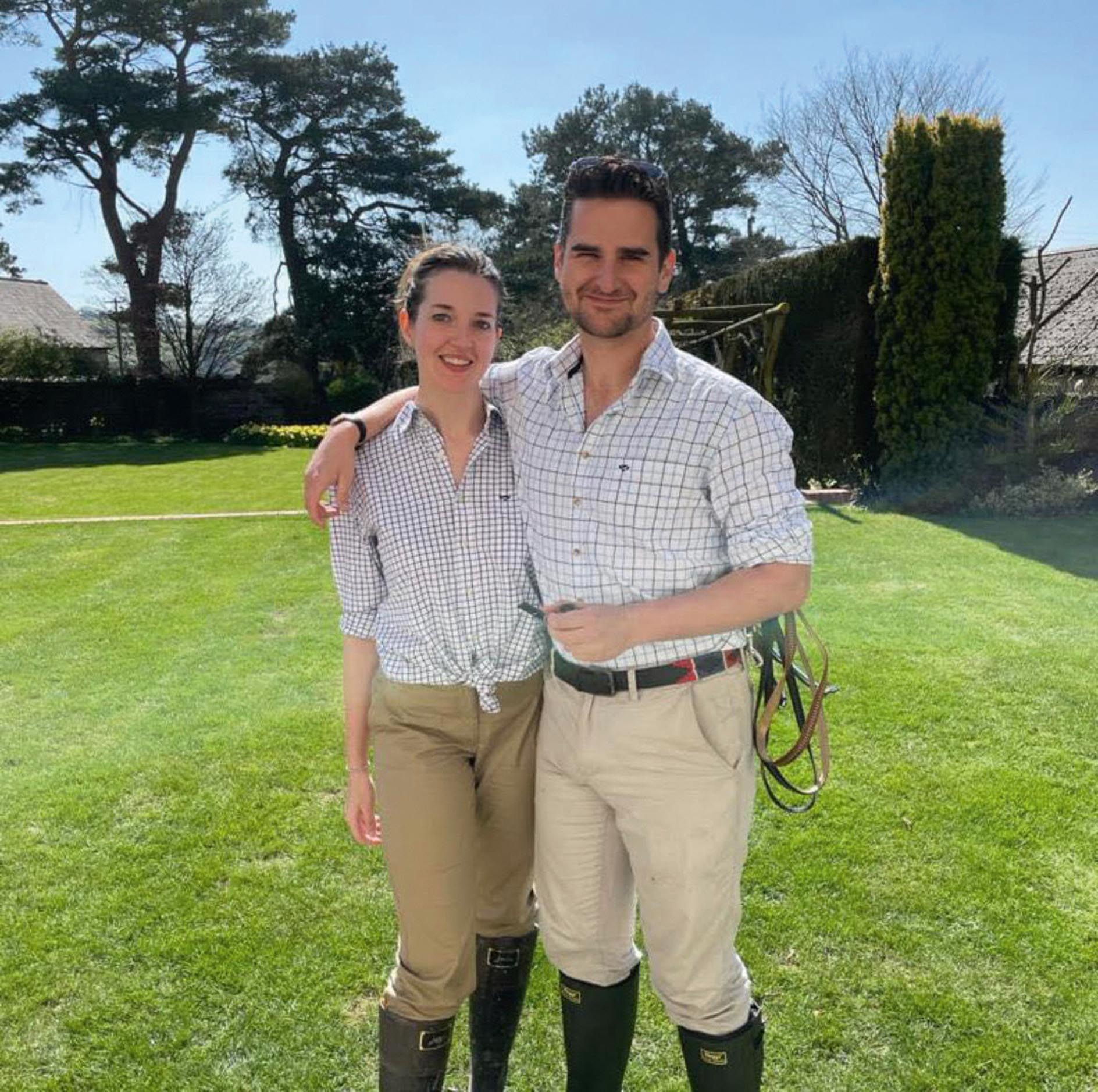
The rise of remote-working and the fact they could get more space and beauty for their money tempted the pair to Somerset. Now, they are fully part of their community, be it attending their parish church, volunteering at village events, taking part in the local history society or propping up the bar in the pub. They made a resolution to throw themselves into rural life in its entirety and have stuck to it. Chickens, a vegetable patch and a much-walked dog are all in the picture.
‘It is harder to meet young people,’ Mr Babington-Reynolds admits, ‘but it doesn’t really bother us.’ Bringing down the average age at village events means they’ve got to know people they wouldn’t have met otherwise. Above all, they say, they are delighted to really feel part of a community.
The expats
Nic and Verity Ramsden moved to the countryside in their early thirties, after six years’ jetting across the world for Mr Ramsden’s work. The pretty little village of Wetheral in Cumbria was a change of atmosphere and pace from Rangoon and Kampala, but the couple decided to embrace village life with enthusiasm.

‘We made a conscious decision to approach our new life in the same way we had treated expat life,’ says Mrs Ramsden. ‘We accepted every invitation we were given, we shamelessly swapped numbers with anyone we met who seemed fun and we joined as many clubs, societies and committees as possible.’
As a result, ‘our quality of life has sky-rocketed,’ believes Mrs Ramsden. ‘Not only do we have gorgeous country walks (and wonderful pubs) on the doorstep, but we’re thoroughly embedded in local community life. I run the church choir, Nic’s in the Rotary Club and we’re both heavily involved in the local am-dram society.’ Furthermore, Mr Ramsden — who wrote and directed the pantomime at the West Walls Theatre in Carlisle last Christmas — reckons that he and his wife have made about 100 friends in less than a year.
Mrs Ramsden notes that ‘some friends thought we were mad’, but seizing the joys and opportunities of country life seems to be something to which this pair of former expats is very well suited.

Nine things every city dweller needs to know before moving to the country
Moving out of the city into the fabulous British countryside is a dream for millions. But there are a few
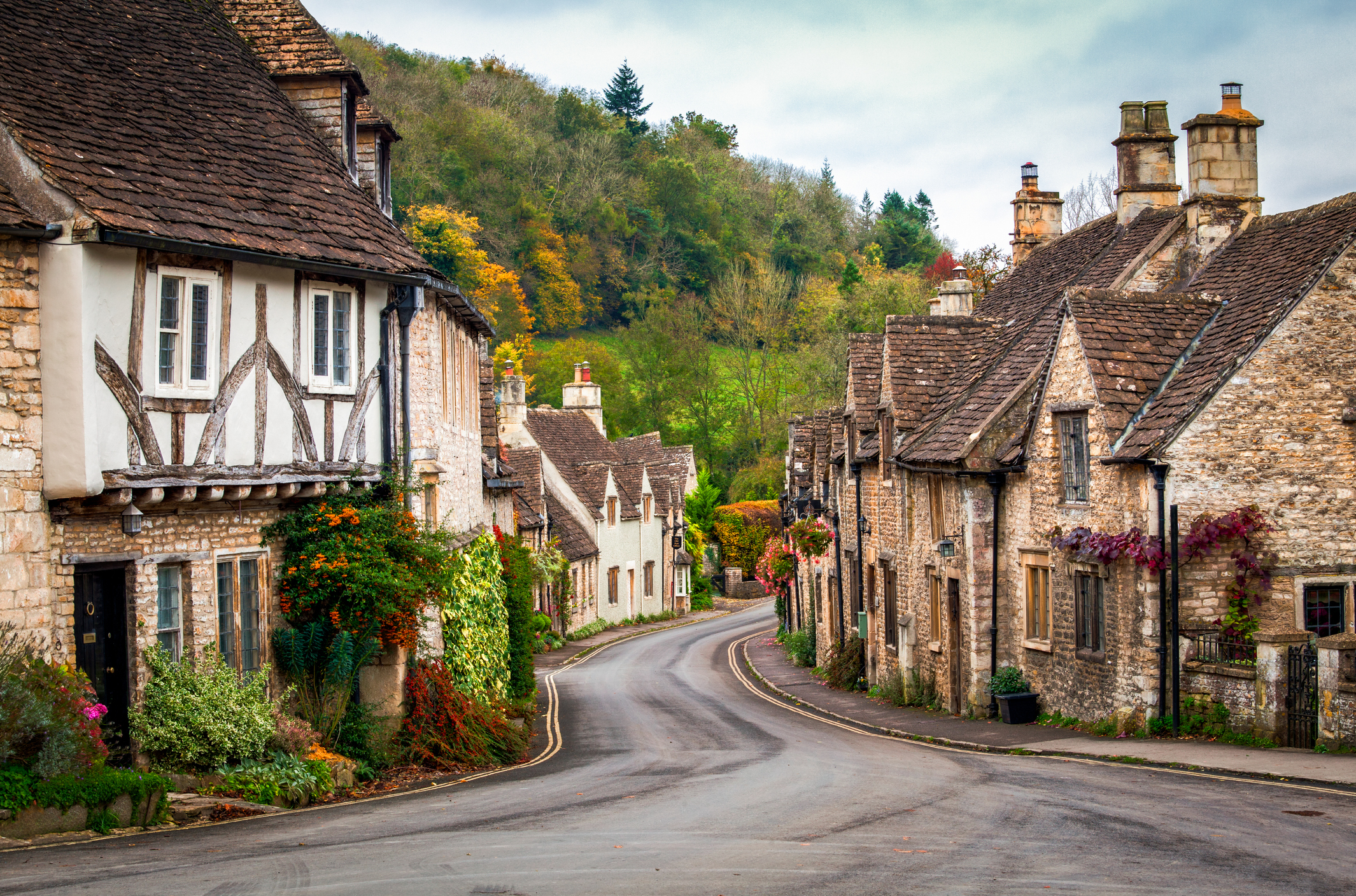
Credit: Getty
14 things everyone should know before moving to a village in the country
For the uninitiated, the unwritten rules and subtle nuances of rural life can be baffling. Giles Kime offers city dwellers
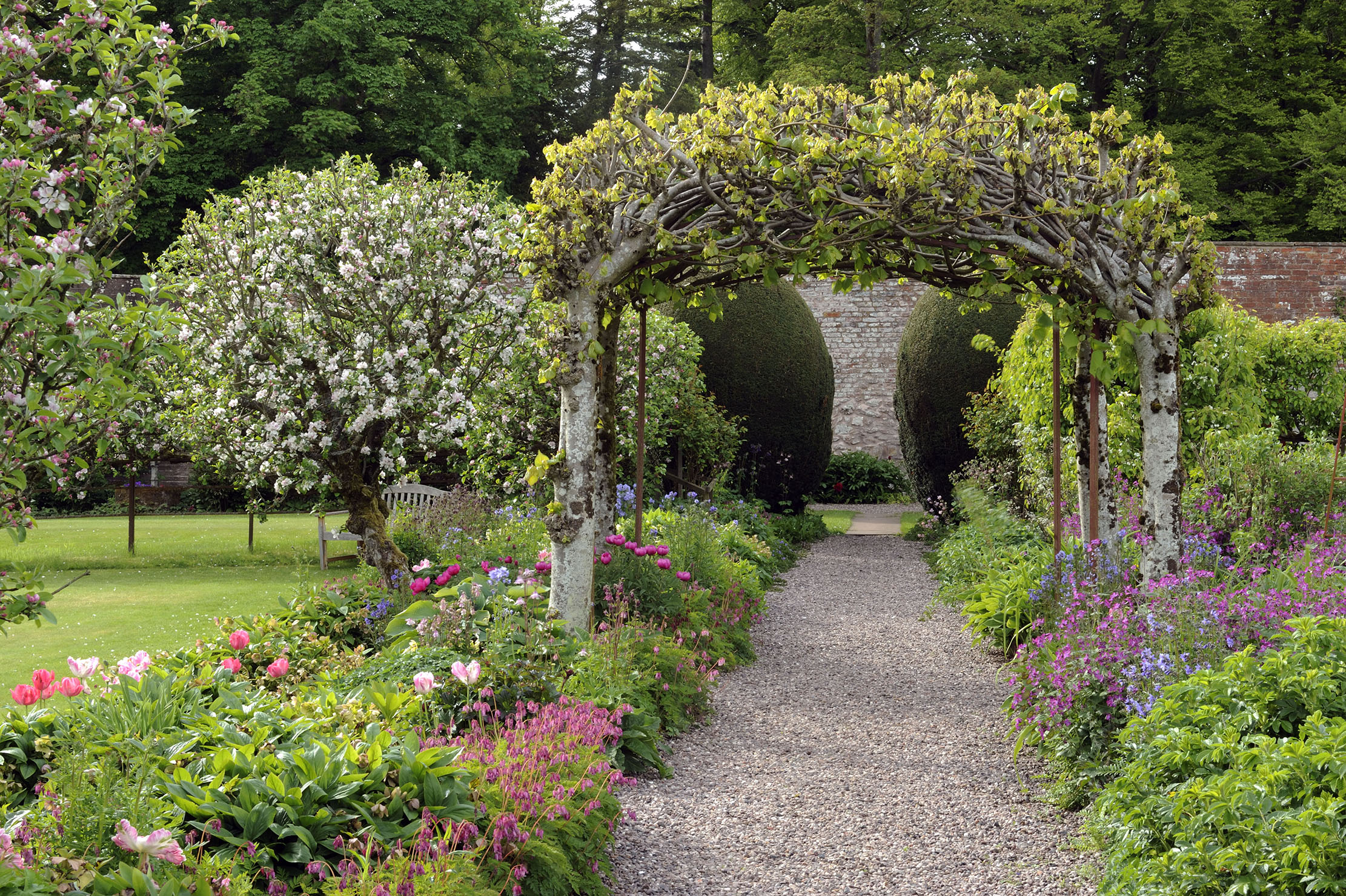
Credit: Val Corbett for the Country Life Picture Libary
Charles Quest-Ritson: Moving back to an English country garden has been a joy — but we do miss the cheese
Giving up life on the Cherbourg peninsula to return to England has brought huge happiness to Charles Quest-Ritson — but
-
 The loos of Buckingham Palace: Country Life Quiz of the Day, April 23, 2025
The loos of Buckingham Palace: Country Life Quiz of the Day, April 23, 2025Wednesday's Quiz of the Day looks at St George, royal toilets and German alcohol laws.
By Toby Keel Published
-
 Moore Design
Moore DesignMoore Design is a boutique interior design practice with clients around the UK and overseas.
By Country Life Published
-
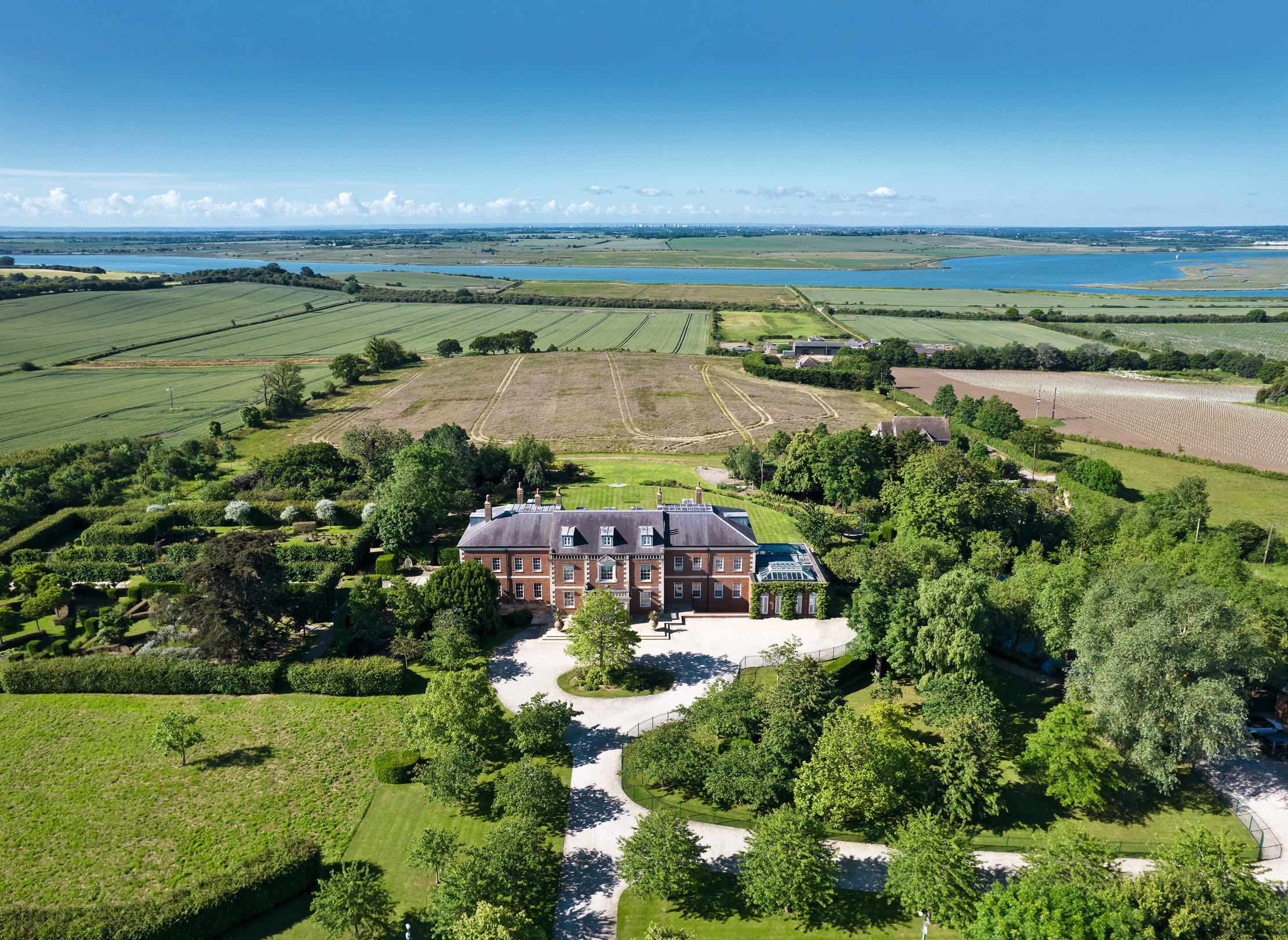 A 327-acre estate in the heart of 'England’s Côte d’Or', with a 26,000sq ft Georgian style home at its heart
A 327-acre estate in the heart of 'England’s Côte d’Or', with a 26,000sq ft Georgian style home at its heartStokes Hall in the Crouch Valley is an inspiring property looking for a new owner.
By Penny Churchill Published
-
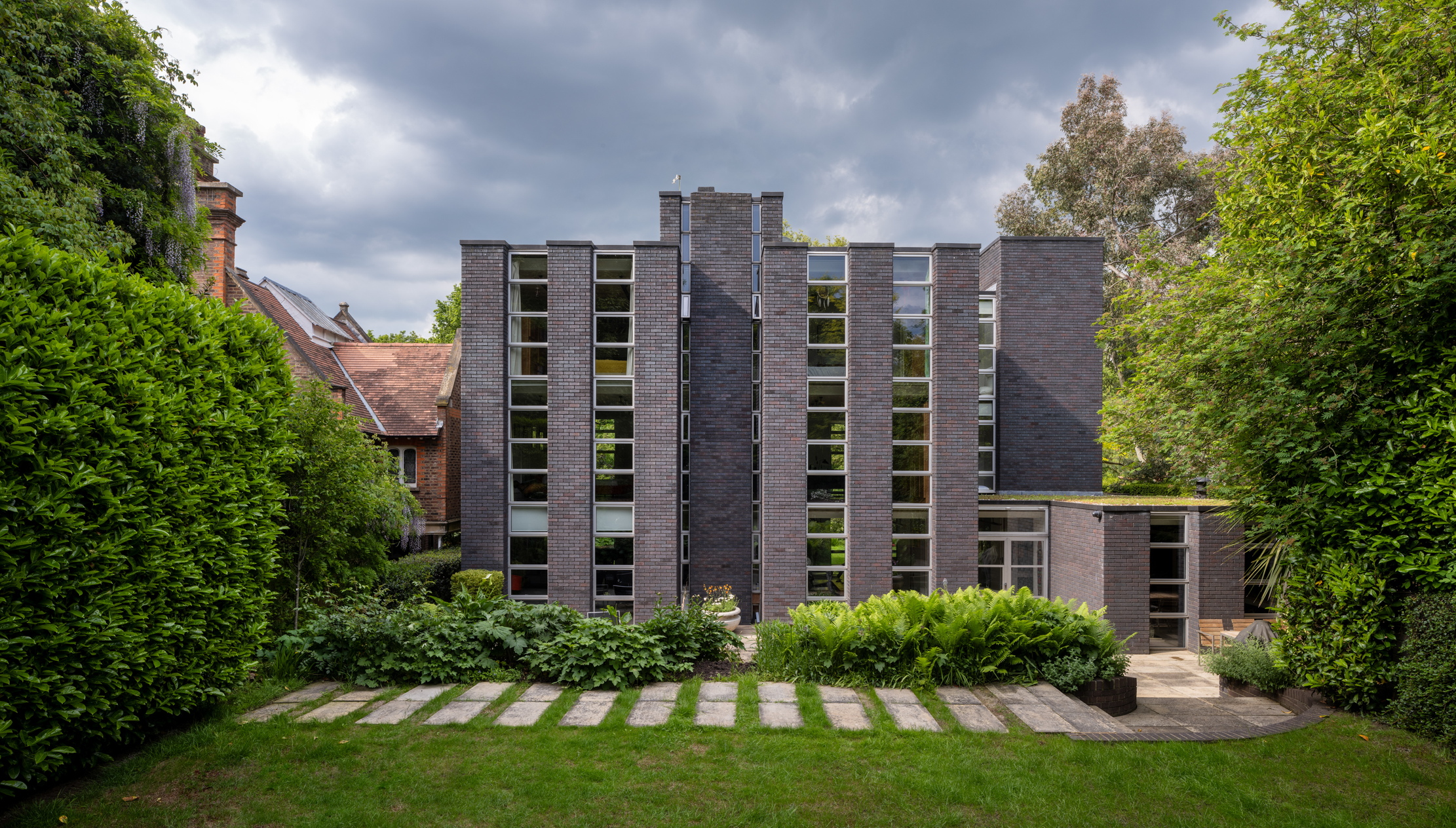 Schreiber House, 'the most significant London townhouse of the second half of the 20th century', is up for sale
Schreiber House, 'the most significant London townhouse of the second half of the 20th century', is up for saleThe five-bedroom Modernist masterpiece sits on the edge of Hampstead Heath.
By Lotte Brundle Published
-
 Is the 'race for space' officially over?
Is the 'race for space' officially over?During the lockdowns, many thought the countryside was the place to be. It seems many are now changing their minds.
By Annabel Dixon Last updated
-
 What's a 'wellness village' and will it tempt you back into the office?
What's a 'wellness village' and will it tempt you back into the office?The team behind London's first mixed-use ‘wellness village’ says it has the magic formula for tempting workers back into offices.
By Annunciata Elwes Published
-
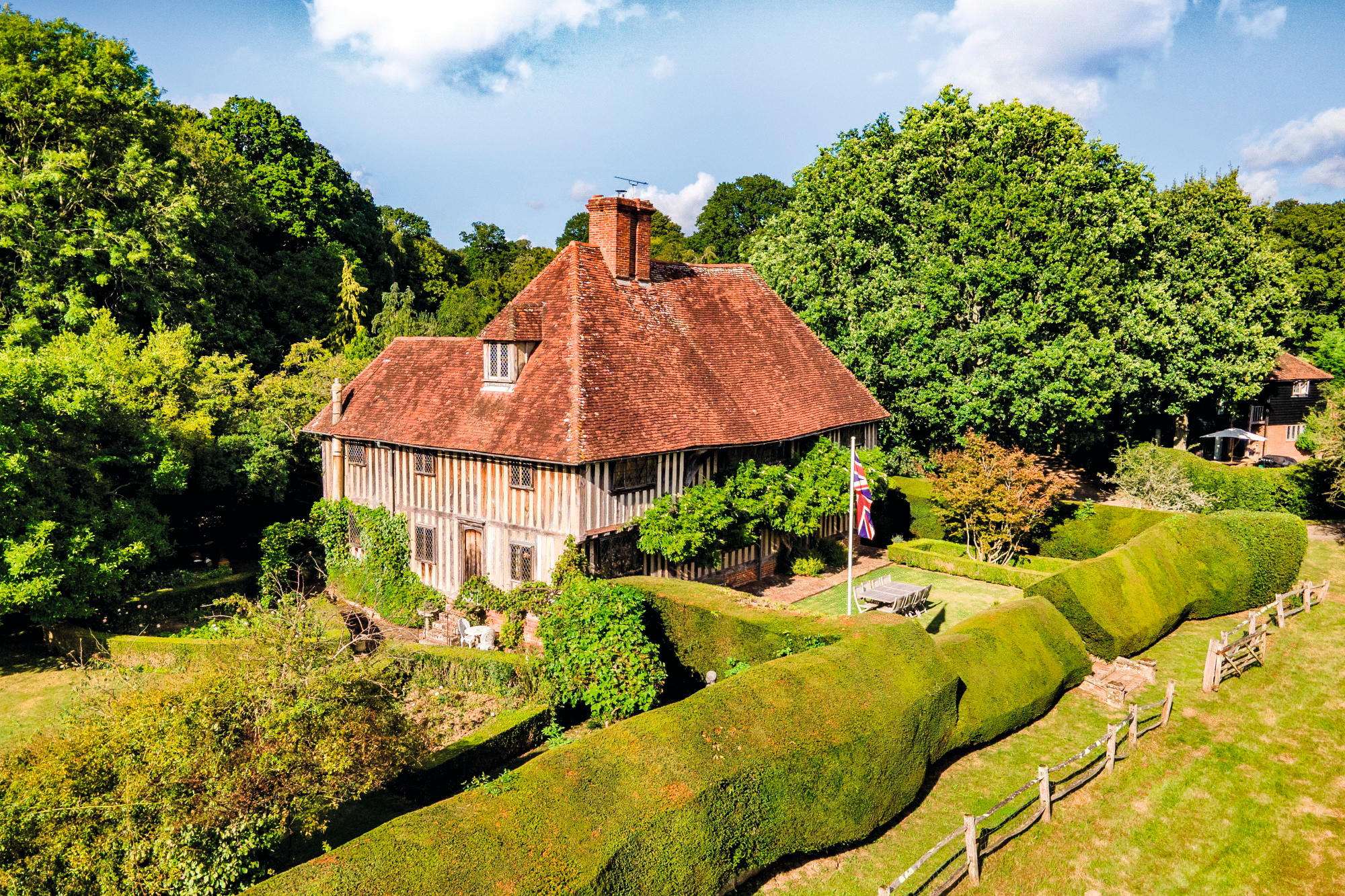 A mini estate in Kent that's so lovely it once featured in Simon Schama's 'History of Britain'
A mini estate in Kent that's so lovely it once featured in Simon Schama's 'History of Britain'The Paper Mill estate is a picture-postcard in the Garden of England.
By Penny Churchill Published
-
 Hidden excellence in a £7.5 million north London home
Hidden excellence in a £7.5 million north London homeBehind the traditional façades of Provost Road, you will find something very special.
By James Fisher Published
-
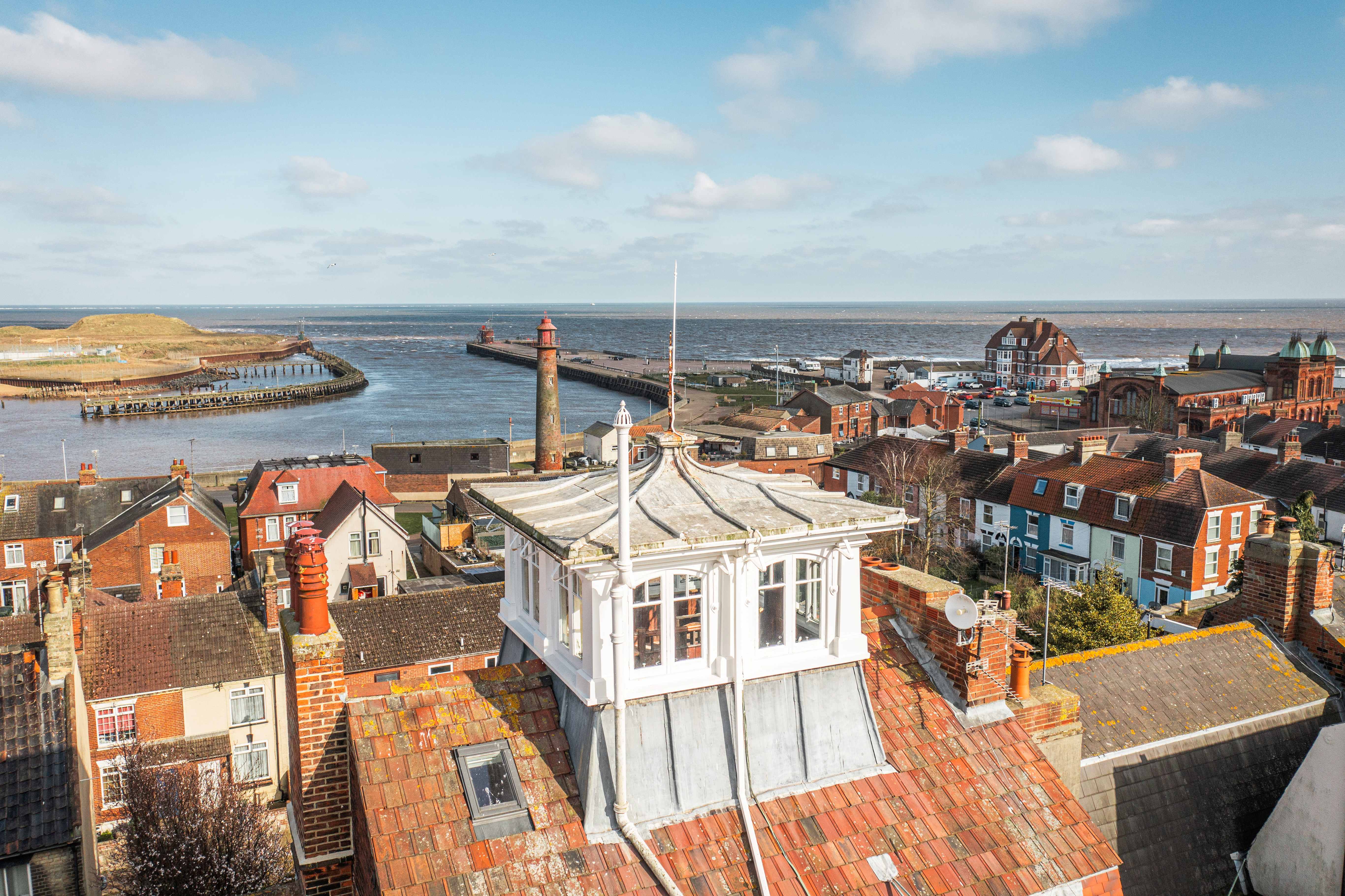 Sip tea and laugh at your neighbours in this seaside Norfolk home with a watchtower
Sip tea and laugh at your neighbours in this seaside Norfolk home with a watchtowerOn Cliff Hill in Gorleston, one home is taller than all the others. It could be yours.
By James Fisher Published
-
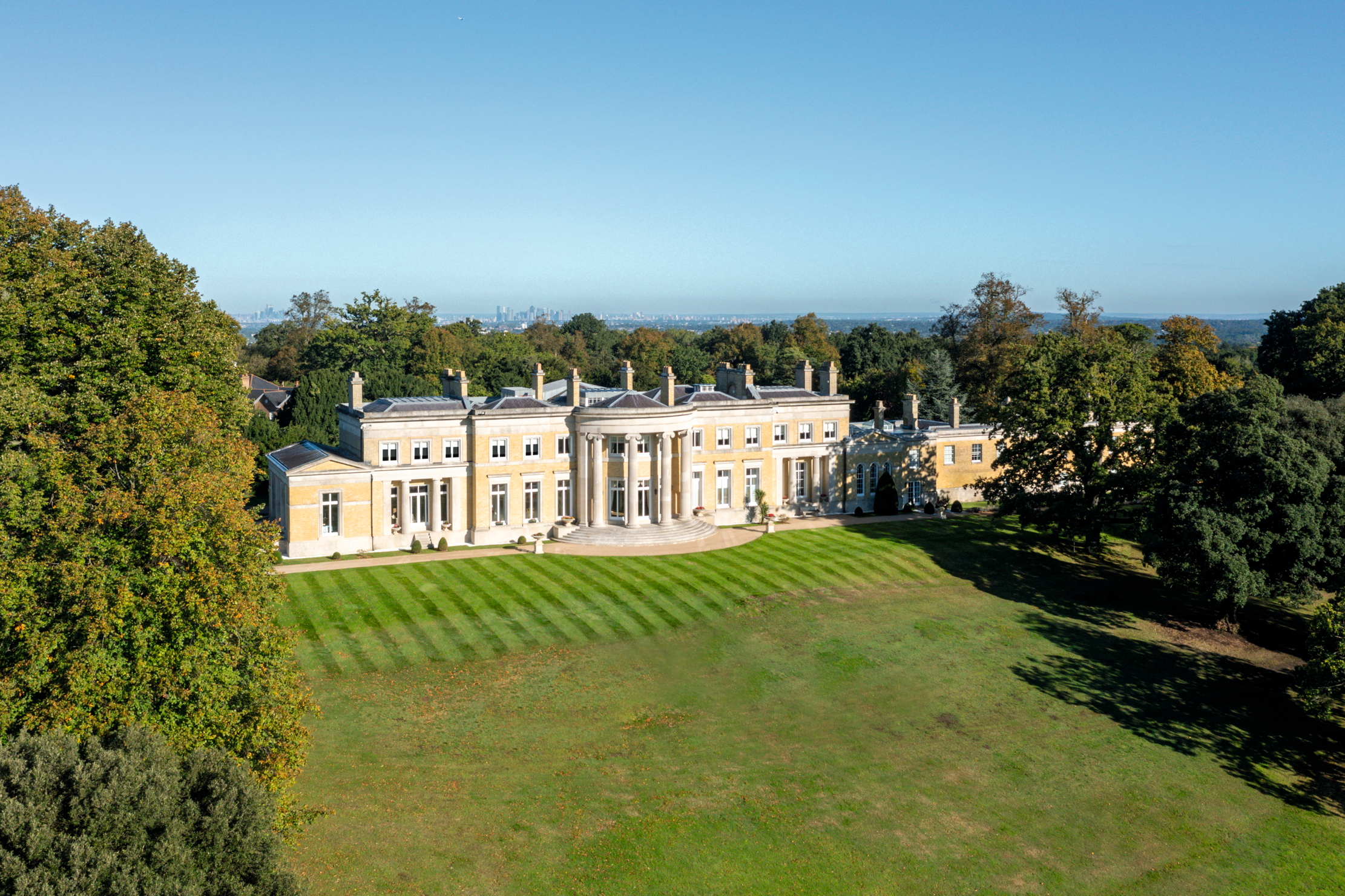 A Grecian masterpiece that might be one of the nation's finest homes comes up for sale in Kent
A Grecian masterpiece that might be one of the nation's finest homes comes up for sale in KentGrade I-listed Holwood House sits in 40 acres of private parkland just 15 miles from central London. It is spectacular.
By Penny Churchill Published
